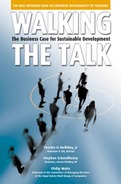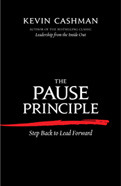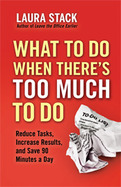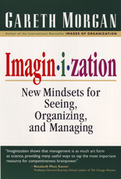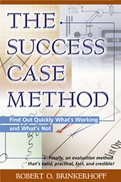2002
Stephan Schmidheiny, author of the hugely influential Changing Course, has joined with fellow prime movers in the World Business Council for Sustainable Development-Chad Holliday of DuPont and Philip Watts of Royal Dutch/Shell-to spell out the business case for addressing sustainable development as a key business strategy.
The authors insist that a global partnership-between governments, business and civil society-is essential, if accelerating moves towards globalization are to maximize opportunities for all, especially the world's poor. They argue that far more eco-efficient and socially equitable modes of development must be pursued in order to allow poorer nations to raise their standards of living.
To achieve these aims, the book explains that markets must be mobilized in favor of sustainability, leveraging the power of innovation and global markets for the benefits of everyone. Business cannot succeed in failing societies.
Whether small, medium or large, all businesses must innovate and change to meet the social and environmental challenges of the coming years. Walking the Talk provides proven strategies for doing just that, and real-world examples of business leaders who are becoming a leading force for change-improving both their own bottom lines and quality of life for future generations around the world.
- The most important book on corporate responsibility yet published
- Written by top corporate leaders Chad Holliday, Chairman and CEO, DuPont; Stephan Schmidheiny, Chairman, Anova Holding AG; and Philip Watts Chairman of the Committee of Managing Directors, Royal Dutch/Shell Group of Companies
- A publication of the World Business Council for Sustainable Development which includes members from 160 of the largest and most influential companies from around the world including: AOL Time Warner, AT&T, Bayer, BP, Coca Cola, and Dow Chemicals (see attached list at the end of the EFS for full listing)
- Uses nearly 70 case histories of companies from around the world to show that good corporate social and environmental performance is an investment which will improve the bottom-line
- Argues that a further liberalization of the global market is the best way to alleviate third world poverty and encourage corporate responsibility
- Explores, in depth, the three pillars of sustainable development: economic growth, ecological balance, and social progress
- The authors are key insiders who show how to mobilize markets in favor of sustainable development
- Copublished with Greenleaf Publishing
Speak Your Mind Effectively!
The best, most direct way to convey your intelligence, expertise, professionalism, and personality to other people is through talking to them. But most people have no idea what they sound like. And even if they do, they don't think they can change it. It's the Way You Say It is a thorough, nuts-and-bolts guide to becoming aware and taking control of how you communicate with others.
Dr. Carol Fleming provides detailed advice and scores of exercises for
Understanding how others hear you
Dealing with specific speech problems
Varying your vocal patterns to make your speech more dynamic
Using grammar and vocabulary to increase your clarity and impact
Reinforcing your message with nonverbal cues
Conquering stage fright
An entire section of the book focuses on communication issues in the workplace-interviews, presentations, voice mail, and more. Dr. Fleming puts a human face on her advice through vivid before-and-after stories of forty men and women who came to her for help.
- By the author of the bestselling audiobook The Sound of Your Voice (over 180,000 copies sold)
- Helps readers improve every aspect of verbal communicationand even nonverbal communication
- Filled with scores of simple, practical, immediately useful exercises
- Click here for the press release
The best, most direct way you convey your intelligence, expertise, professionalism, and personality to other people is through talking to them. And fairly or not, people form judgments about you based not only on what you say but on how you say it. This is particularly true in business situations, where first impressions really count. You may have only a few minutes to interview for a job, pitch your services, describe your business plan, or close a sale.
But most people have no idea what they sound like. And even if they do, they dont think they can change it. They assume its something theyre born with, as immutable as height. But its not. Its the Way You Say It is a thorough, nuts-and-bolts guide to becoming aware and taking control of how you communicate with others.
Carol Fleming provides detailed advice and scores of exercises for understanding how others hear you and for dealing with specific speech problems like talking too fast, too high, too soft, and so on. But she goes far beyond that to home in on the more subtle aspects of vocal communication. She shows how to vary your vocal patterns to make your speech more dynamic and compelling, use grammar and vocabulary to increase your clarity and impact, and reinforce your message with nonverbal cues. An entire section of the book focuses on communication issues in the workplaceinterviews, presentations, voice mail, and more. She puts a human face on her advice through vivid before-and-after stories of forty men and women who came to her for help.
No matter how brilliant you are, if you cant communicate well youll be stymied at every turn, on the job and off. Like it or not, your voice is you. Carol Fleming gives you the tools you need to make your voice an effective instrument not just for conveying information but for conveying the essence of who you are to the world.
2012
- By the author of the bestselling Leadership from the Inside Out
- Presents a paradoxical and transformative principle: in today's world, leaders must step back in order to move forward with more purposeful, value-generating impact
- Filled with insights, research, stories, and pragmatic exercises to help leaders pause to grow themselves, grow others, and grow cultures of innovation
- Click here for the press release
Accustomed to doing, striving, and achieving, leaders are too often addicted to speed and action. But we live and lead in an increasingly volatile, uncertain, complex, and ambiguous world. Change is constant and we are on information overload. The way forward is often unclear.
How can leaders deal with critical decisions, develop creative solutions, and thrive in the relentless pace of their 24/7 reality?
Paradoxically, Kevin Cashman contends that the answer is not to act more quickly but to pause more deeplyto slow down to go fast, to stop and prioritize, to make time to discern and think clearly. Rather than doing more, we need to learn to do differently. The Pause Principle offers a catalytic process to move from mere management efficiency and transaction to leadership innovation and transformation.
Pausing is a poweful methodology to imbue continuous growth in three critical domains: personal leadership, development of others, and fostering of innovation cultures. Drawing on decades of experience working with senior leaders, personal stories, and research in psychology, neuroscience, and leadership development, Cashman focuses our attention on our inherent power to ground our leadership and our organizations in authenticity, generativity, and purposeful transformation.
The demands on global leaders have never been more challenging. With so much coming at them, leaders must pause to make sense of it all. The Pause Principle offers breakthrough practices for leading as a whole person, harnessing one's drive to create more compelling, creative, and sustainable futures.
Presents a straightforward, comprehensive system that allows you to do less and achieve more.
Are you tired of productivity consultants—or worse, your boss—pushing you to do more with less? You’re in luck. Laura Stack knows your to-do list is already packed to capacity, so she shows you how to accomplish more by doing less. Yes, you read that right. Stack’s innovative time-management system lets you work less and achieve more. Following Stack’s step-by-step Productivity Workflow Formula, you’ll organize your life around the tasks that really matter and—this is crucial—let go of those that don’t. Dozens of practical strategies will help you reduce your commitments, distractions, interruptions, and inefficiencies. You’ll shrink your to-do list and save time—around ninety minutes a day—while skyrocketing your results and maintaining your sanity.
1997
There is no time more confusing than when we are in the midst of a world waiting to be born. Gareth Morgan's landmark book makes the case that there is some profound and productive business sense in the current chaos and shows how ideas about management, roles, responsibilities, and work itself need to change in many different ways if we are to take full advantage of the unique opportunities that evolving markets and organizations present.
Imaginization details the process of "imaginization" (imagination + organization)-a new core competence that's essential for leading and managing in a world characterized by flux and change. This process answers the call for more open, flexible, creative forms of organization and management to meet the challenges of a networked, electronic age.
Dozens of books call for new management practice, often selling just one or two pet theories or ideas. This is the first book to show how to develop the multiplicity of ideas that are going to be needed. The critical difference in Gareth Morgan's work is that it focuses on the 'how-to's:
o How to create new, more flexible forms of organization
o How managers can develop new understandings of their roles and their problems and learn to see situations in different ways
o How they can develop more flexible approaches to strategy and piece together their own creative toolbox
o How organizations can be centralized and decentralized at the same time
Using simple yet powerful graphics to illustrate and communicate his message, Morgan builds on the insights of his classic Images of Organization which pioneered the idea of using metaphor to create new insights in organization and management.
Imaginization teaches by example. Each chapter focuses on how the approach can be put into practice, providing dozens of concrete illustrations and case studies drawn from real-world organizational change projects and management development programs.
From page one, Morgan draws a complex, but coherent methodology for achieving success in today's organizations. Few management books address the range of issues raised here--creativity, strategy, empowerment, new structures, and many more. Imaginization brings them all together, demonstrating how all of these issues can be approached through the same creative process.
- New thinking from the bestselling author of Images of Organization (over 250,000 copies sold)
- A practical guide that shows how to put "out of the box" thinking into practice
- Teaches managers to unleash the creative abilities of employees, develop new ways of organizing, and remain open, energized, and empowered in the face of constant change
- Copublished with Sage Publications
Because it seeks out the best stories of how real individuals have actually used innovations, The Success Case Method can ferret out success no matter how small or infrequent. It can salvage the few "gems" of success from a larger initiative that is not doing well or find out how to make a partially successful effort even more successful. The practical methods and tools in this book can help those who initiate and foster change, including leaders, executives, managers, consultants, training directors, and anyone else who is trying to make things work better in organizations get the greatest returns for their investments.
• Presents an evaluation method that is simple, practical, efficient, fast, extremely cost-effective, and produces compelling results
• Can answer virtually any organizational question, such as: Why is a new product launch faltering? Why are some managers losing staff, while others retain theirs? Is a pilot program ready to launch company-wide? Is a new training program accomplishing its goals?
• Proven effective in organizations ranging from Ford Motor to Gap International, Compaq, American Express, and the World Bank
• Uses real success stories that demonstrate the impact of new initiatives in ways that statistics can't
Each year, organizations spend millions of dollars trying out new innovations and improvements-and millions will be wasted if they can't quickly find out what's working and what is not. The Success Case Method offers a breakthrough evaluation technique that is easier, faster, and cheaper than competing approaches, and produces compelling evidence decision-makers can actually use.
Because it seeks out the best stories of how real individuals have actually used innovations, The Success Case Method can ferret out success no matter how small or infrequent. It can salvage the few "gems" of success from a larger initiative that is not doing well or find out how to make a partially successful effort even more successful. The practical methods and tools in this book can help those who initiate and foster change, including leaders, executives, managers, consultants, training directors, and anyone else who is trying to make things work better in organizations get the greatest returns for their investments.


